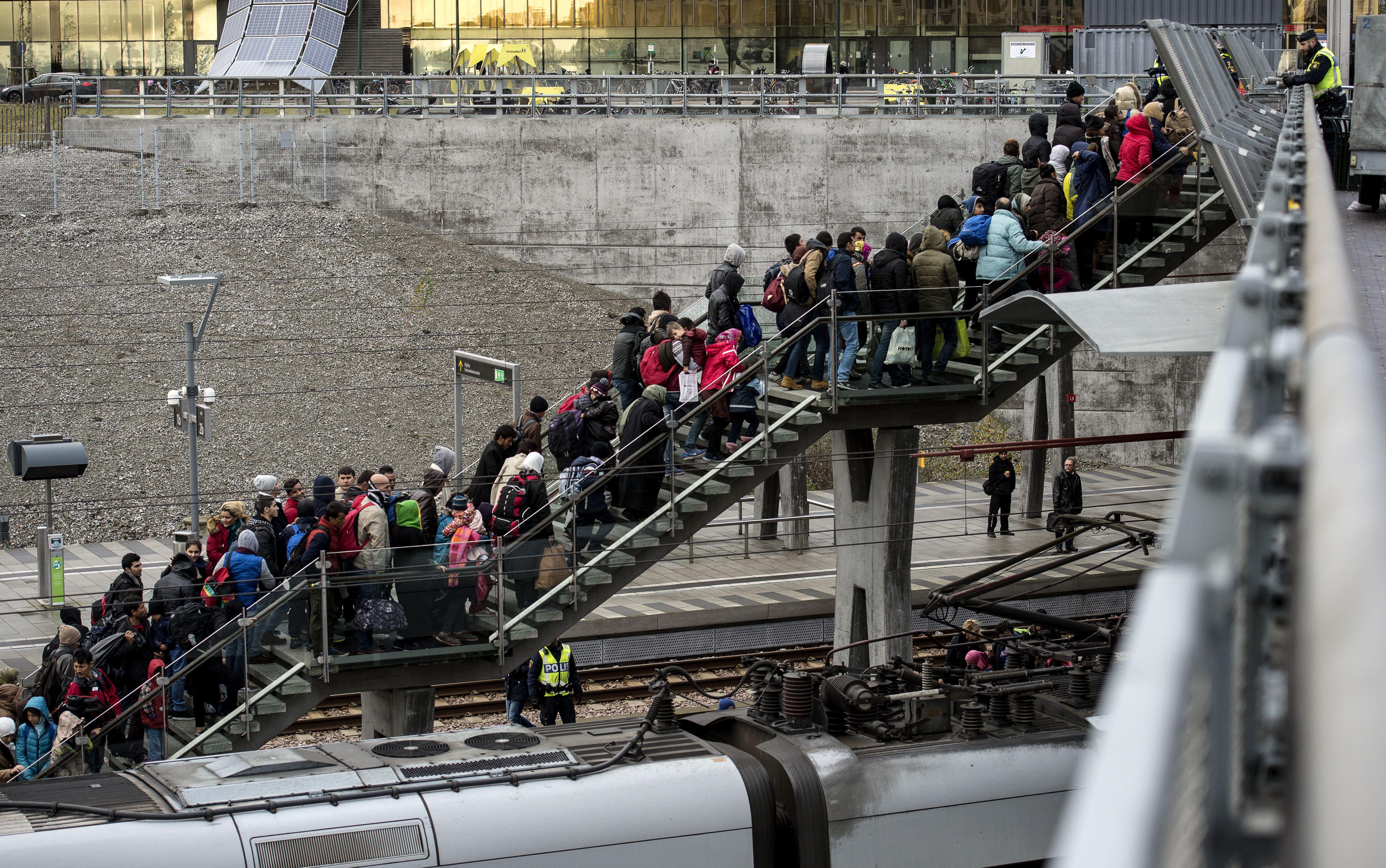European countries have been divided in their response to the refugee crisis, with older EU countries in Western Europe generally taking a more open stance than the newer members in the east. Even among the more welcoming countries, Germany and Sweden stood out, taking in the highest total number of refugees and highest number per capita respectively. But with the number of arrivals in Europe this year topping 1 million and security concerns growing after this year’s terrorist attacks, even those countries are starting to reconsider.
Germany is altering its policies next year, requiring personal hearings for asylum seekers from Syria, putting an end to a simplified asylum process for Syrian refugees that has been in place since 2014. German Chancellor Angela Merkel was named Time’s person of the year and was considered a favorite for the 2015 Nobel Peace Prize in large part because of her leadership on the Syrian refugee crisis, but in the wake of the Paris attacks she has been under increasing pressure from both her own political allies and other European governments who argue that Germany’s generous asylum policies are encouraging more refugees enter the EU, crossing their territory. Merkel is trying to push public opinion on the issue, arguing in a New Year’s address that Germany is strong enough to absorb the influx and that the country can benefit from the new arrivals, but even she has conceded to her opponents that Germany needs to reduce the number of refugees it accepts.
Amid growing public discontent over the large numbers of refugees entering the country, “humanitarian superpower” Sweden is also changing its tune, introducing new border controls and cutting benefits in an attempt to discourage the tide of new arrivals. “We’re willing to do more than anyone else, but even we have our limits,” migration minister Morgan Johansson told the Washington Post.
Even with Europe’s most generous countries slowly shifting their positions, the union’s external borders shutting , and Turkey now agreeing to regulate the flow of refugees into the continent, the mass migration seems unlikely to slow as long as the bloody conflict in Syria persists. If anything, these moves seem likely to put even more pressure on Syria’s neighbors, already overwhelmed by the exodus.
